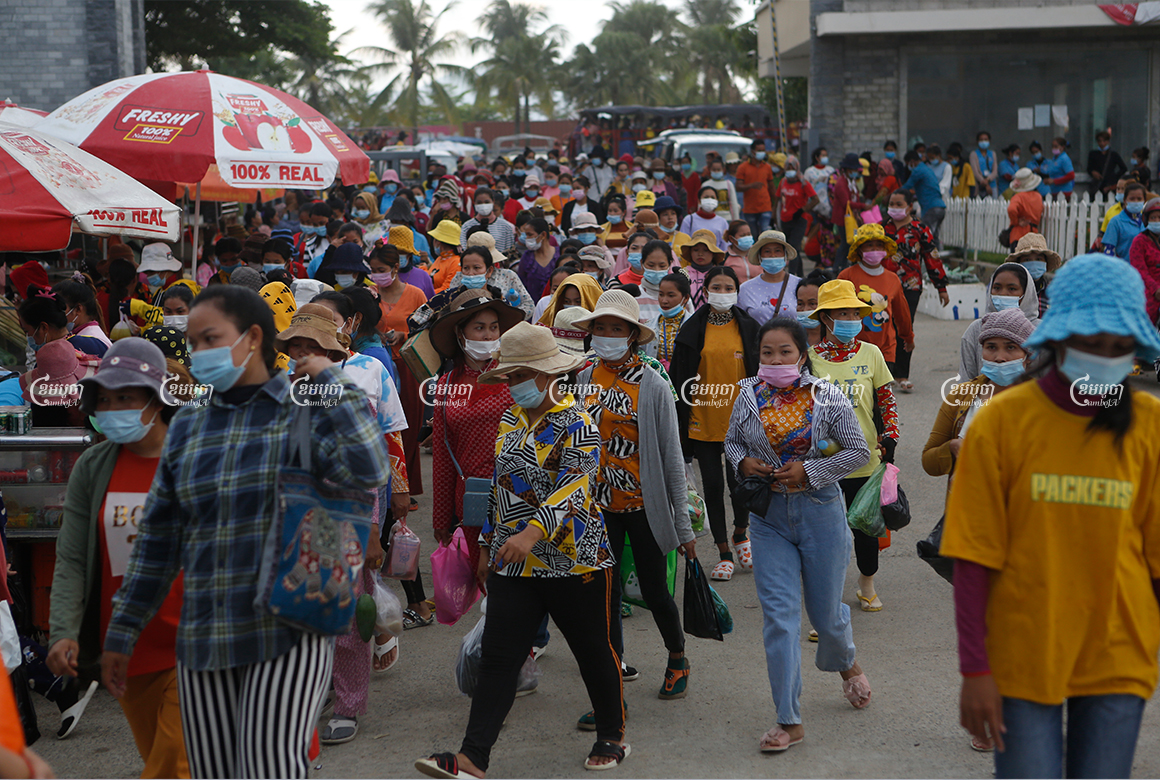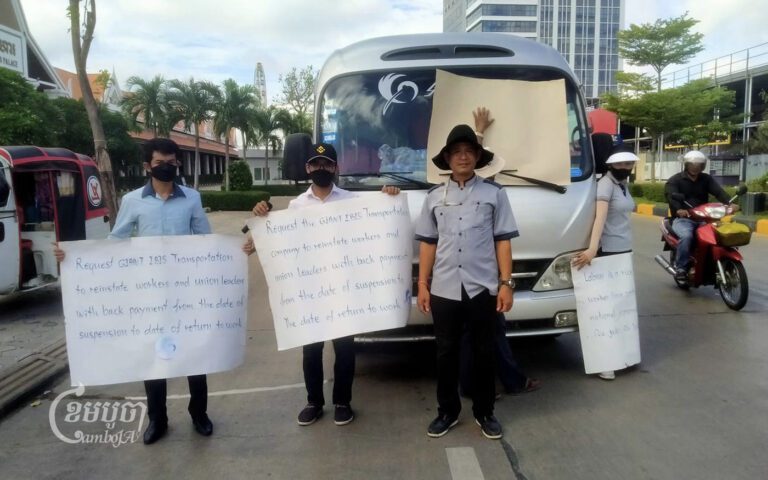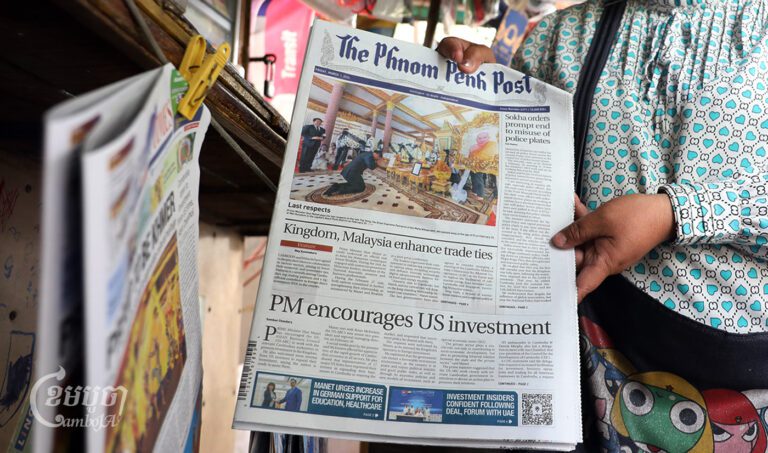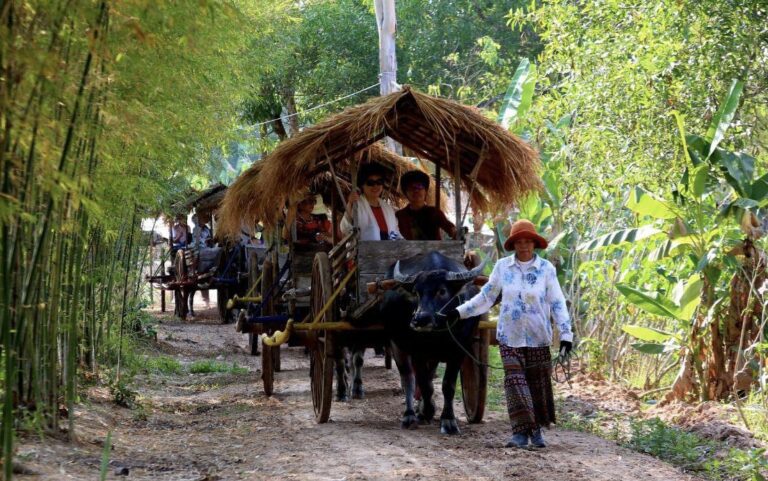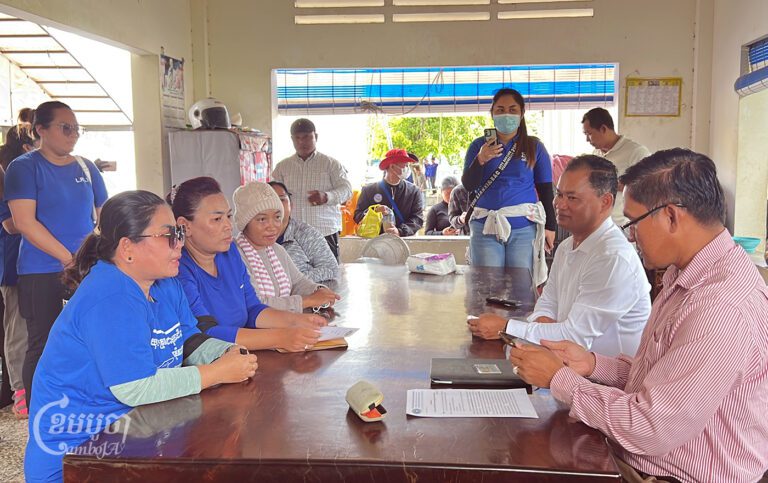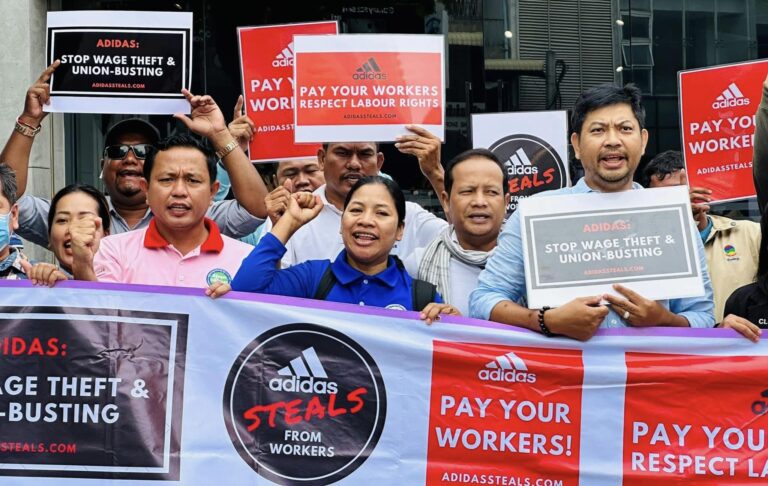Over the past two weeks, at least 80 garment workers have tested positive for COVID-19 in just a handful of provinces outside Phnom Penh, sparking worries from laborers, union leaders and civil society figures that measures to reopen factories are insufficient.
The most recent infections among workers come after the government lifted restrictions on inter-provincial travel and announced new regulations for the safe reopening of factories following the three-week lockdown in Phnom Penh and neighboring Takhmao. Since then, provincial officials told CamboJA they’ve detected at least 20 new cases of COVID-19 in Kampong Chhnang, 35 in Kampong Cham and 30 in Kampong Speu.
Union leaders and civil society groups say the ongoing spread of the virus among garment workers is due to insufficient closures of factories, which are largely permitted by officials to stay open with limited closures of impacted sections. Meanwhile, provincial authorities say the most dangerous point for viral transmissions isn’t in factories themselves but rather on the tightly packed truck transports for workers, a means of commuting flagged as unsafe even without the risk of COVID-19.
In Kampong Chhnang, provincial health department director Prak Vun said 20 garment workers from the extensive Horizon Outdoor company factory tested positive for COVID-19 on Tuesday. The factory complex employs a total of about 9,000 people in Kampong Tralach district’s Longvek commune.
“Today, we have decided to close five buildings that are seriously involved,” Vun said, adding that about 3,000 workers usually work in the affected buildings and safety measures have been taken among the others. “We have not yet temporarily closed [the whole factory] because working groups are trying their best to figure it out.”
Vun said that workers who tested positive so far are now receiving treatment at a health center, while others with unknown status have been contacted for COVID-19 testing and 14-day quarantine. Vun said the workers had been infected by other workers and believed they had been moving between the capital area and the provinces.
“There are thoroughly preventive measures inside the factory, but we are concerned they are riding vehicles [trucks] together to the workplace,” he said.
A 29-year-old garment worker who declined to be named due to fear of retribution by factory management told CamboJA she is very worried the factory is still in operation after the discovery of COVID-19 among staff.
“I don’t know how they will handle that because they allowed some workers to go home who had contact with positive cases,” she said. “I am very afraid because I am still working. I don’t feel like going to work.”
She urged the factory owner to temporarily close in order to prevent the virus from infecting other workers.
“We are now working under fear,” she said.
The Ministry of Health reported 393 new cases of COVID-19 on Wednesday, bringing the total case count to 23,282 since the pandemic began in early 2020. The large majority of these cases have been recorded since the February 20 starting point of the ongoing community outbreak. The ministry has also recorded 14,955 recovered cases and 159 deaths from the virus.
Yang Sophorn, president of the Cambodian Alliance Trade Union, told CamboJA she was concerned the virus would continue to spread among other workers without stricter measures to temporarily close the factory.
“[Workers] are still afraid of infection even with a break in some sections because workers ride trucks together to the same workplace, [and have] lunch time where they sit closely together,” she said. “In my opinion, they should have temporarily suspended a short period to avoid viral infection.”
Sophorn said the government had not taken serious efforts to prevent infections among garment workers amidst a wave of community transmission.
Chhou Chandoeun, Kampong Chhnang provincial governor, said the factories in his province are otherwise operating as usual despite the COVID-19 situation. He also pointed to truck transportation as a potential vector for infection and said a suspension order for Horizon Outdoor isn’t off the table.
“We are really concerned about factory issues because there are a lot of people at factories,” Chandoeun said, adding that authorities can work to prevent infections within factories by following measures put forth by the Ministry of Health. “If we see a serious infection and high risk, we might make a decision to temporarily close [Horizon].”
Meanwhile in Kampong Speu, provincial Governor Vei Samnang said one factory, called Wah Sun KH, has been closed entirely for now after about 30 workers there tested positive on May 5.
That facility employs more than 3,000 people, of whom 493 were tested for the virus. That factory has so far had the largest COVID-19 outbreak of the province’s 153 manufacturers.
Besides Wah Sun KH, authorities temporarily closed some sections of 11 other factories after finding cases of COVID-19 there.
Since the start of the February 20 community outbreak, health authorities have tested 790 workers at these other factories, which remain open at limited capacity. In total over the past three months, 140 workers at these sites have tested positive for COVID-19.
“We can’t have the whole factories closed, because there will be a lot of impact on the economy,” Samnang said. “We are researching sources of infection, we mostly think it’s from taking trucks together.”
Authorities in Kampong Cham province are now conducting similar investigations after recently confirming 35 positive cases, mostly among garment workers from three factories in Bateay and Choeung Prey districts.
“They have been infected by other workers because they are travelling up and down between Phnom Penh and the province,” said Heng Vanny, deputy governor of Kampong Cham. “We are researching and if there are more cases confirmed positive, we will consider closing those factories.”
Small outbreaks have also been detected in other provinces. In Takeo, provincial health director Nuth Sinat said authorities in late April had recorded four factories with cases of viral infection, with between four and 10 patients found at each site. Officials had temporarily closed parts of those factories but have since allowed them to reopen.
Ath Thorn, president of Cambodian Labor Confederation (CLC), said the common tactic of sectional closures in factories is not effective in preventing the outbreak of COVID-19.
“I think if factories are found to have been infected, they should temporarily close as a whole and continue monitoring the situation for 14 days,” he said. “That problem [closing some sections] caused the spread of the infection.
“When one factory is affected by COVID-19, it will affect other factories nearby.”
Health Ministry Secretary of State Or Vandine referred to the Labour Ministry on questions of virus protection for garment workers. She told CamboJA the ongoing vaccination campaign has reached about 2 million people, or 21 percent of the 10 million targeted for inoculation.
Labour Ministry spokesman Heng Sour could not be reached for comment. Nor could
Ken Loo, secretary general at Garment Manufacturer Association in Cambodia (GMAC), the industry group representing factory owners and operators.
Yong Kim Eng, president of the People Center for Development and Peace civil society group, shared similar concerns as the union leaders on the risks in factories.
“We are concerned about a huge cluster infection, because each factory has employed thousands of workers,” he said, urging the government to pay attention to garment workers. “It is a high risk because workers are not just infected, their family members could be infected too.”


